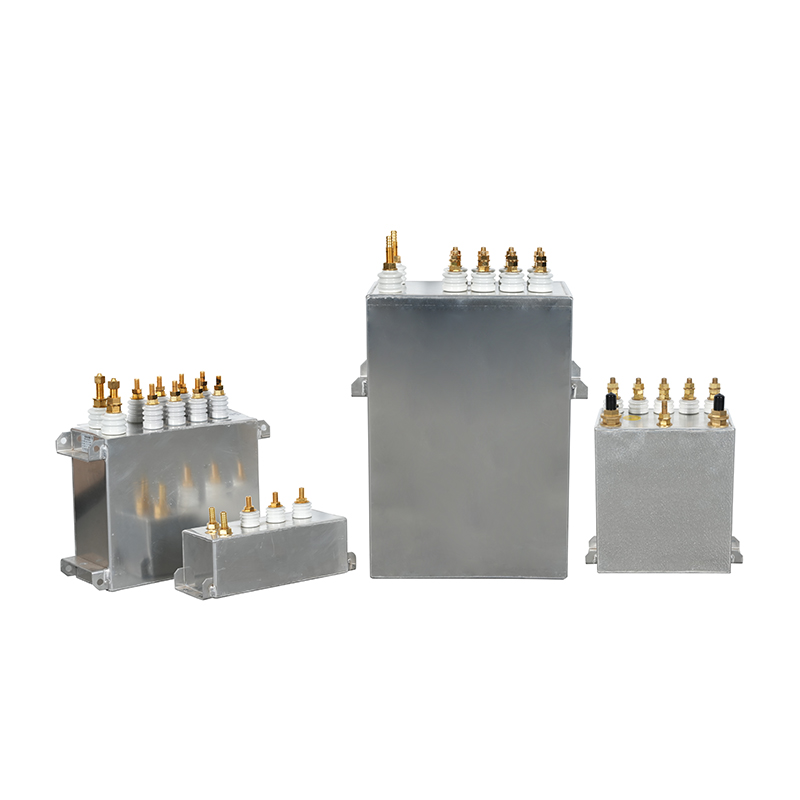Content

Induction heating systems rely heavily on capacitors to store and discharge energy efficiently, ensuring optimal performance in industrial applications. Among the various types available, high voltage induction heating capacitors manufacturers produce components that are critical for demanding environments where standard capacitors may fail. These specialized capacitors are designed to handle extreme electrical loads, making them indispensable in metal hardening, brazing, and other high-power processes.
When selecting high-voltage capacitors for induction heating, several key factors must be considered. Voltage rating is the most crucial, as insufficient voltage handling can lead to premature failure. Industrial-grade capacitors typically range from 1 kV to 10 kV, with some heavy-duty models exceeding these limits. Current capacity is another vital parameter, as capacitors must sustain rapid charge-discharge cycles without overheating. Additionally, the dielectric material used—often polypropylene or ceramic—plays a significant role in performance and longevity.
High-voltage capacitors generate substantial heat, necessitating effective cooling solutions. Air-cooled models are common in moderate applications, but high voltage induction heating capacitors manufacturers increasingly favor water-cooled designs for high-power systems. Water cooling ensures consistent temperature regulation, reducing thermal stress and extending capacitor lifespan. Some advanced models incorporate forced-air cooling with heat sinks for environments where liquid cooling is impractical.
Industries such as automotive, aerospace, and metal fabrication rely on high-voltage capacitors for precision heating. In induction hardening, for example, capacitors must deliver rapid, controlled energy bursts to achieve uniform material properties. Similarly, in brazing and soldering, stable voltage output is essential to prevent defects. The right capacitor selection can enhance energy efficiency, reduce downtime, and improve product consistency.
Not all capacitors meet the rigorous demands of industrial induction heating. Reputable high voltage induction heating capacitors manufacturers adhere to international standards such as IEC, UL, and RoHS compliance. Key indicators of quality include low equivalent series resistance (ESR), high ripple current tolerance, and robust construction to withstand mechanical vibrations. Third-party testing and field performance data should also influence procurement decisions.
While standard capacitors suit many applications, some industrial processes require tailored solutions. Custom induction heating capacitor solutions for industrial plants address unique challenges that off-the-shelf components cannot. Whether optimizing for specific frequencies, unusual form factors, or extreme operating conditions, custom capacitors enhance efficiency and reliability.
Mass-produced capacitors are designed for general use, meaning they may not align with specialized requirements. For instance, high-frequency induction heating (above 50 kHz) demands capacitors with minimal parasitic inductance, which standard models may lack. Similarly, harsh environments—such as those with high humidity or corrosive gases—require enhanced sealing and material choices.
Developing custom induction heating capacitor solutions for industrial plants involves collaboration between engineers and manufacturers. Key design aspects include:
Melting furnaces operate under extreme thermal and electrical stress, making capacitor selection critical. Identifying the best induction heating capacitor suppliers for melting furnaces ensures reliability, efficiency, and longevity in high-temperature applications.
Melting furnaces require capacitors that can endure continuous high-power operation without degradation. Key challenges include:
The forging industry presents some of the most demanding operational conditions for induction heating systems, where energy efficiency and equipment durability are paramount. Low loss induction heating capacitors for forging applications have emerged as a critical solution to address these challenges, offering superior performance compared to conventional capacitor designs.
Modern forging facilities operate under intense pressure to reduce energy consumption while maintaining high production output. Traditional capacitors in induction heating systems can account for significant energy losses through heat generation and parasitic resistance. Low loss induction heating capacitors for forging applications are specifically engineered to address these inefficiencies through advanced dielectric materials and optimized internal construction.
As induction heating systems continue to push power density boundaries, thermal management has become a critical factor in system reliability. Reliable water-cooled capacitor for induction heating systems have become the preferred solution for high-power applications, offering superior cooling efficiency compared to air-cooled alternatives.
The principle behind water-cooled capacitors lies in the superior heat transfer capabilities of water compared to air. With a specific heat capacity approximately four times greater than air and far better thermal conductivity, water can remove heat from capacitor elements much more efficiently. Reliable water-cooled capacitor for induction heating systems leverage this physical advantage through carefully engineered cooling channels that maintain dielectric materials within their optimal temperature range.
Contact Us
News center
information
Tel: +86-571-64742598
Fax: +86-571-64742376
Add: Zhangjia Industrial Park, Genglou Street, Jiande City, Zhejiang Province, China